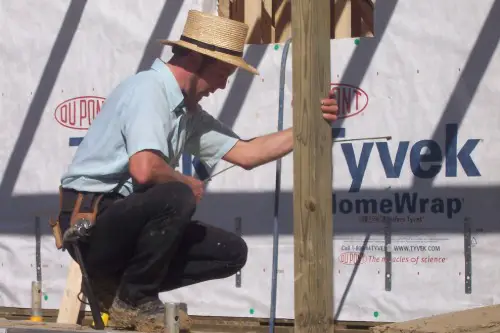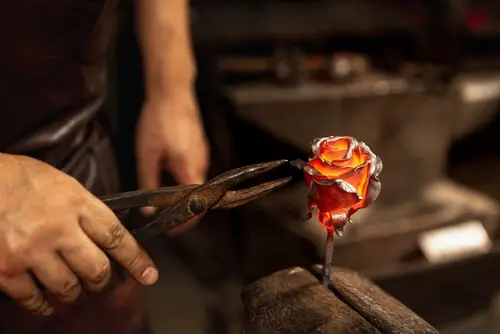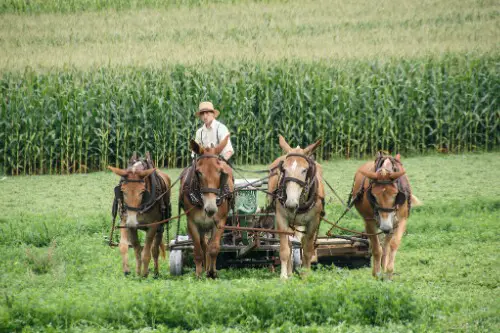1. A bird in the hand

Most people remember the start: “A bird in the hand is worth two in the bush.” But few recall the original cautionary ending: it warns that grasping at more than you can hold can lead to losing what you already have. It’s less about greed and more about appreciating what’s secure. This proverb was widely used in colonial America, often in advice for farmers or traders.
It’s a gentle nudge to think before taking unnecessary risks. The imagery makes it stick—holding a bird in your hand versus chasing two that might escape. It reminds you that ambition is good, but overreaching can be costly. That simple “hand vs. bush” phrasing carries a subtle warning most people miss today.
2. Curiosity killed the cat

Everyone knows this one, but what’s forgotten is the original continuation: “Curiosity killed the cat, but satisfaction brought it back.” Early Americans often used it to caution children against dangerous meddling while also suggesting that curiosity itself wasn’t inherently bad. The addition flips the meaning entirely—it’s not just a warning, it’s an encouragement for mindful exploration. People today usually just use the first part, losing the more nuanced lesson.
It’s fascinating because it shows how the proverb evolved. In its full form, it acknowledges human nature: curiosity can be risky, yet rewarding. The original ending was more comforting than frightening. It’s the “look before you leap” version for anyone with a sense of adventure.
3. Jack of all trades

Most folks quote it as “Jack of all trades, master of none,” but the original actually adds, “but oftentimes better than master of one.” This twist celebrates versatility rather than mocking it. Early Americans valued practical skills and adaptability, especially on the frontier. The full version turns a put-down into a compliment for well-rounded people.
It’s a reminder that being adaptable can be more useful than being narrowly specialized. The modern truncation loses the optimistic spin. Back then, a “Jack” could handle carpentry, farming, and basic repairs—all essential for survival. That full ending gives the saying a warmth that resonates with self-sufficiency.
4. Don’t count your chickens

The modern snippet is “Don’t count your chickens before they hatch,” but historically it ended with “…lest you lose the eggs as well as the birds.” Early American farmers used it literally: premature celebration could lead to disappointment. It’s practical advice grounded in daily life. The full ending emphasizes consequences, not just caution.
It’s about patience and humility, not pessimism. The added phrase shows how easily hope can turn to loss. By remembering the ending, you see the proverb’s richer, almost narrative quality. It’s a story compressed into a sentence.
5. An apple a day

We all know “An apple a day keeps the doctor away,” but the original went on to say “…if you throw it hard enough.” That humorous ending shows the wit early Americans often added to their sayings. They valued both health and humor in practical advice. It’s a reminder that these proverbs weren’t always meant to be entirely serious.
It also underscores how context matters—apples were abundant and symbolic of simple, accessible remedies. The exaggeration adds personality. It’s an example of how humor kept life lessons memorable. And it shows that some sayings evolved by dropping their playful edges.
6. Early to bed

“Early to bed, early to rise” is common, but it originally continued: “…makes a man healthy, wealthy, and wise, but also makes him miss the best parties.” Early Americans loved the health and productivity lesson, but the cheeky ending reminds us life is about balance. Work and rest were celebrated alongside social enjoyment. This hidden ending gives the proverb a more human, relatable angle.
It illustrates the frontier work ethic without ignoring fun. The original phrasing reflects daily life rather than just moralizing. The humor shows people could be wise and playful at the same time. It’s a gentle reminder that rules aren’t absolute.
7. Penny wise

People often quote “Penny wise, pound foolish,” but the fuller version used to warn, “…and you’ll pay for it in the end with sorrow.” Colonial Americans relied on thrift for survival, but they recognized that obsessive penny-pinching could backfire. The extended ending emphasizes consequences beyond money. This makes the proverb more cautionary and reflective.
It’s not just about finances—it’s about perspective. Being frugal is good, but losing sight of bigger outcomes is costly. The old phrasing adds emotional weight to a practical warning. It’s a lesson in balancing carefulness with foresight.
8. Rome wasn’t built

“Rome wasn’t built in a day” is familiar, but originally it ended with “…and the builders knew it would take a lifetime.” Early Americans admired the proverb for its patience lesson, especially in agriculture and construction. The ending emphasizes effort, dedication, and acceptance of slow progress. It’s about valuing hard work over immediate results.
This fuller version encourages persistence. It reminds us that great achievements take time. The original gives context that modern usage often lacks. It’s a comforting thought for anyone facing long-term challenges.
9. The proof is in the pudding

Most know the truncated “The proof is in the pudding,” which loses its original meaning: “…for without tasting, you’ll never know the sweetness or sour.” Colonial cooks and homemakers used it literally. The ending reminds us that outcomes, not appearances, matter. Today’s usage often misrepresents it entirely.
It’s about judgment based on experience, not assumptions. The metaphor becomes richer when you remember the tasting part. It illustrates the practical, hands-on wisdom of the time. You can see why the phrase was popular in everyday advice.
10. All that glitters

We all hear “All that glitters is not gold,” but the original added “…and sometimes the dullest stone hides treasure.” Early Americans used it to teach discernment, often in trading or bartering situations. The ending gives hope, balancing caution with optimism. It’s a subtle reminder not to underestimate what seems plain.
It turns the proverb into a lesson in observation. Not everything shiny is valuable, but not everything plain is worthless either. This nuance is often lost in modern usage. The complete saying captures a moral and practical dimension together.
11. Strike while the iron is hot

The familiar version is “Strike while the iron is hot,” but the original extended it to “…or you’ll find the fire has cooled.” Blacksmiths and craftsmen used it literally, teaching urgency and timing. The ending makes the consequence explicit, not just the action. It’s a warning and a lesson wrapped in one.
It’s practical advice applied metaphorically to opportunities. Timing, awareness, and decisiveness were essential in everyday life. The original phrasing adds drama and clarity. The proverb becomes more vivid and memorable this way.
12. Make hay while the sun shines

Everyone quotes it to mean “act while you can,” but the full version included “…for tomorrow may hide clouds and misfortune.” Early farmers needed more than motivation—they needed caution and planning. The ending reflects realistic optimism, reminding us to prepare for the unknown. It balances action with prudence, a hallmark of old American sayings.
It’s about seizing opportunity without being reckless. The original phrasing carries both encouragement and warning. Life was unpredictable, and the saying mirrors that mindset. Remembering the ending makes it more than just a catchy phrase—it’s guidance for living.
13. Don’t throw the baby out

Most people recall “Don’t throw the baby out with the bathwater,” but early Americans sometimes added “…for you’ll be left only with soap and sorrow.” It was a colorful way of warning against rash decisions. The full ending gave the phrase a sharper emotional punch. It wasn’t just about caution, but about what happens when carelessness overshadows common sense.
The imagery made it hard to forget—households really did reuse water for bathing, so the exaggeration struck a chord. It turned ordinary chores into a lesson about value and patience. Dropping the ending left the phrase more abstract. The original had a storytelling flair that modern usage has smoothed away.
14. You can lead a horse

We usually hear “You can lead a horse to water, but you can’t make it drink.” The original continuation was “…unless it thirsts from wisdom.” Early Americans tied the proverb to education and morality, using it to emphasize inner readiness. The ending added depth, showing that change can’t be forced, only encouraged.
The full version makes it more than a practical image. It suggests that learning and growth come from within. The horse’s thirst becomes a metaphor for human willingness to change. This longer form turns the saying into a meditation on free will.
15. A watched pot

Today we say “A watched pot never boils,” but the old ending went “…yet turn your back, and it may boil over.” The original balanced patience with vigilance. It wasn’t simply a warning about impatience—it was also about awareness. Life could move from dull to chaotic in an instant.
The forgotten conclusion makes the proverb richer. It recognizes that too much attention can feel endless, but neglect can be worse. Early Americans appreciated this dual meaning in household and farm life. It’s a sharper reminder than the shortened version we use now.
16. The squeaky wheel

We often stop at “The squeaky wheel gets the grease,” but the fuller version ended with “…though sometimes the quiet one rolls further.” This gave the saying a twist of irony, showing that noise isn’t always the best path. It reminded listeners that substance sometimes beats attention-seeking. The nuance balanced encouragement for speaking up with respect for steady progress.
The ending reframes the whole idea. It’s not just a call for persistence, but a reflection on character. The quiet, diligent worker often earned long-term rewards. That’s a side of the proverb we’ve lost in its modern use.
17. Too many cooks

Most recall “Too many cooks spoil the broth,” but the original added “…unless the cooks know their portions.” This version emphasized cooperation as much as caution. It wasn’t only a warning against overcrowding, but an appeal for organization. Early Americans prized teamwork, especially in large households and communities.
The full phrase makes the lesson more constructive. It suggests order can prevent chaos. Dropping the ending turned it into pure negativity. The original phrasing held a hint of optimism about human coordination.
18. Don’t bite the hand

The saying “Don’t bite the hand that feeds you” used to continue with “…lest you hunger twice as long.” The added phrase underscored real consequences for ingratitude. It wasn’t just a matter of respect, but of survival. Early Americans relied heavily on reciprocity and generosity.
The longer ending gives the proverb teeth, so to speak. It shows the practical dangers of turning against support. The brevity of the modern version loses that sense of cause and effect. The old one was more direct and memorable.
19. The grass is always greener

We hear “The grass is always greener on the other side,” but the forgotten part went “…till you find it needs mowing too.” This ending grounds the proverb in everyday labor. It turns envy into a reminder that every choice comes with effort. Early Americans loved sayings that linked morality to chores.
The full line softens jealousy with humor. It’s a witty way to remind people that appearances deceive. Every pasture, like every life, brings its own challenges. The ending makes the proverb more relatable and down-to-earth.
20. When it rains, it pours

Most people know “When it rains, it pours,” but older versions included “…yet without rain, the crops will fail.” The full line reframed misfortune as part of life’s balance. What feels overwhelming might also be necessary. This made the proverb less gloomy and more practical.
The forgotten ending gives the saying a stoic wisdom. It acknowledges that abundance, even of trouble, can serve a purpose. Early Americans saw storms as both hardship and blessing. That layered meaning disappears in the modern, clipped form.
This post 20 Old American Proverbs That No One Remembers the End Of was first published on American Charm.


